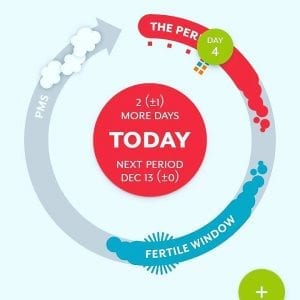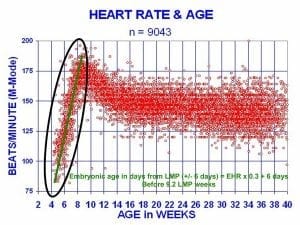Pregnancy due date calculators are unfamiliar for many people. Some only use a pregnancy calendar. However, this pregnancy tool is essential, especially for first-time mothers. With that, let us explore the ins and outs of a due date calculator week by week.

What Is A Pregnancy Due Date Calculator?
A pregnancy calculator provides estimates of three important dates for a mother and a baby. Do you know how to use the pregnancy calculator? The list below enumerates the dates which the pregnancy calculator should have:
- Date Of Conception: This date is most likely two weeks after your last period, and this is probably the day you conceive your baby.
- Due Date: Refers to the date wherein your baby will approximately arrive in the real world
- Estimated Fetal Age: Shows you the number of weeks of the development of your baby
Factors Considered When Using A Due Date Calculator
There are a lot of details needed in using a due date calculator. Here are some of the most critical factors.

1. Average Length Of Menstrual Cycle
This factor refers to the average days on how long your period lasts. Most people usually input 28 days in this part. However, do not depend on this number since women have their cycle. Your cycle might be a little bit shorter or even longer. If you have an irregular cycle, just put in the default 28 days. This is one of the reasons why you should know how to use pregnancy calculators.
2. Last Menstrual Period
When putting your last menstrual period, you have to make sure you put the very first day of your last period. If you do not remember your last period, try getting a calendar and recall your days or weeks. This might help you determine the said date easier.
3. Average Luteal Phase Length
The Luteal Phase is a little bit complicated to determine than the previous two factors. To compute this, you have to find the difference between the beginning of your next period and the day after ovulation. If you also don’t know the dates needed to determine this, just use the default 14 days for your luteal phase.
How To Compute Your Due Date?
From the factors mentioned above, you can then use the following details to compute for your due date using the Naegele’s rule. This simple method can be implemented using the following processes:
- The average due date is assumed to be 40 weeks after the first day of an individual’s last menstrual period.
- The expected ovulation will happen on the 14th day on a 28-day long cycle.
- With this, the preg calculator will just add seven days on the first day of the last menstrual period.
- Using the value you got from the previous step, the user should subtract three months.
- If necessary, change the year by adding one in the said year.
Week-By-Week Pregnancy Calculator

Aside from knowing the conception date and due date, it is also important to track the estimated fetal age through the pregnancy week calculator. By knowing how to use the pregnancy calculator week by week, mothers will be able to follow their baby’s development and provide explanations and remedies for the changes happening in their bodies.
How Accurate Is A Pregnancy Calculator?
Remember, a pregnancy calculator by the due date is the best “estimate” for your baby’s arrival in our real world. However, only 4 percent of these babies are born on the exact computed date. Nevertheless, it is still best to prepare beforehand just in case you deliver your little bundle of joy outside the said due date.

No matter how small the possibility of your baby to be born on the forecasted day, it is still important to engage in this practice. Being a mother is not an easy task. Hence, it is better to familiarize yourself with a pregnancy calculator to at least foresee your baby’s condition and adequately prepare yourself with this milestone.
FAQs
How do you calculate pregnancy?
Most of the pregnancies last approximately 40 weeks or 38 weeks since conception. Thus, one of the better ways to establish a due date is to count for 40 weeks or 280 days. This means counting from day 1 of your last period. Another method is to subtract three months from day 1 of your last menstrual period and then add seven days.
How soon can I take a pregnancy test calculator?
If you test positive on the pregnancy test kit on day one of your missed menstrual period, perhaps it has been two weeks since you conceived. You may use the pregnancy due date calculator to find out your baby’s delivery date is. There are also more sensitive tests that are capable of confirming if you’re pregnant or not, and these tests can be done earlier, like eight days since you conceived.
How is the expected date of delivery calculated?
The rule is to make an estimate of the EDD or the Expected Delivery Date by adding one year, minus three months, and adding another seven days to the original gestational age. The end result is approximately 40 weeks or 280 days from the beginning of your last period.
What day did I get pregnant?
Oftentimes, the calculation of a baby’s age is done by using day one of the mother’s last period. But in truth, the baby was not actually formed until the ovulation and fertilization phases of the egg. This typically occurs at least ten days after day one of the mother’s period. There are a lot of factors affection conception, which is why it is quite hard to know the exact date of when someone got pregnant. The calculator simply helps come up with an estimated date.
How can you detect early pregnancy?
If you think you’re pregnant, watch out for early warnings like frequent urination, breast pain, cramping, spotting, missed period, fatigue, and nausea. These are some of the most common signs. However, not all women get to experience early warning signs. You can always go to your doctor and be sure about it (read further here at AmericanPregnancy.Org).
Does sugar pregnancy test work?
There is no concrete scientific evidence of why or how sugar pregnancy tests work. Researchers claim that hCG makes it more difficult for sugar to dissolve in a woman’s urine, so it creates clumps instead. Thus, there is proof that this test actually works.
How can a woman get pregnant fast?
Doctors generally advise those who want to get pregnant fast to first and foremost get rid of things that stress you out the most. Or since stress is a regular thing for us, then find ways to reduce it, like exercising or meditating. Getting enough sleep is also an essential element in helping women get pregnant. It is crucial for a woman’s (or a man’s) physical and mental health. You are also advised not to have sex every day. That may be putting too much pressure on both you and your partner, and perhaps his little swimmers. Finally, eat a balanced diet.
Can you get pregnant on your period?
Yes, but it is very unlikely. A woman usually gets pregnant in the middle of her menstrual period. During this time known as ovulation, the ovary releases the egg. Ovulation takes place 7 to 19 days after a woman’s menstrual period ends.
How do you give birth?
When a woman gives birth, her uterine muscles are pressing down on the baby’s bottom. The baby’s top, or the head portion, is pressed on the mother’s cervix. As this happens, the hormone oxytocin is released to help the mother start labor and give birth eventually, as it initiates muscle contraction.
Can I feel pregnant after two days?
Some pregnancies may be felt earlier than usual, but oftentimes, you don’t really notice this right away, like two days. Whatever happens immediately after having sex is not usually connected to pregnancy. Examples of this are increased discharge or spotting. Pregnancy symptoms tend to start approximately fix or six weeks into pregnancy.
Last Updated on January 12, 2023 by Rejie Salazar
DISCLAIMER (IMPORTANT): This information (including all text, images, audio, or other formats on FamilyHype.com) is not intended to be a substitute for informed professional advice, diagnosis, endorsement or treatment. You should not take any action or avoid taking action without consulting a qualified professional. Always seek the advice of your physician or other qualified health provider with any questions about medical conditions. Do not disregard professional medical advice or delay seeking advice or treatment because of something you have read here a FamilyHype.com.